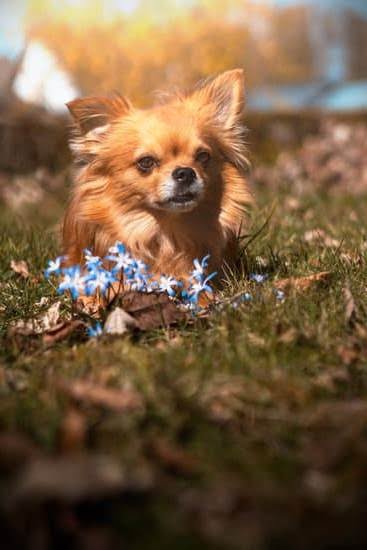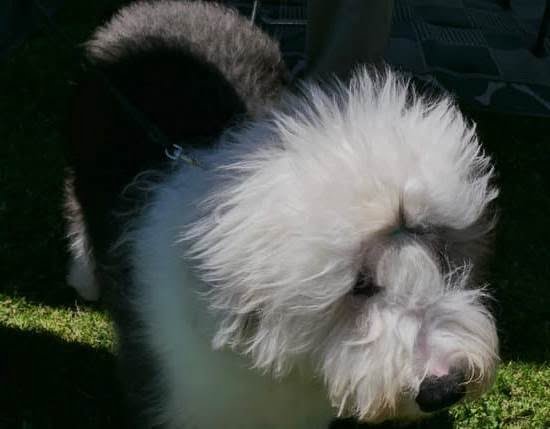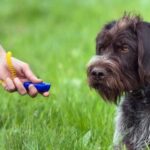Introduction
Training a squirrel dog offers a number of benefits to the hunter. Having a squirrel dog in one’s party makes it far easier to locate and hunt down squirrels, since a well-trained dog is able to quickly and easily flush them out of their hiding spots. Additionally, having a trained squirrel dog provides the hunter with an excellent line of defense against the various dangers posed by the wild. A vigilant dog can alert the hunter to an incoming animal or human threat long before it may become apparent. Furthermore, having a trained hunting companion can help elevate your hunting experience in general, as you will always have company and entertainment while trudging through game-rich areas. Finally, bringing along a canine assistant allows one to extend his or her range, as dogs are capable of trailing scents across great distances — enabling hunters to effectively cover more ground in shorter amounts of time.
Choosing the Right Breed
When choosing a breed of dog for squirrel hunting, it is important to consider more than just the physical attributes. Different breeds have different temperaments which can affect how well they will perform in any given situation of hunting. Paying attention to the temperament of each breed and researching their normal behaviors is recommended as this will help to understand what techniques may be best for creating a successful hunter.
To get a better insight on how each breed will perform when trained for squirrel hunting, one should learn about the breed’s natural prey instinct and other elements that can contribute to an effective squirrel-hunting dog, such as its natural behavior around small creatures, its awareness and being able to identify smells and sounds, and if it is easily distracted by other animals or different noises while on the hunt. Understanding these various components is key to helping one choose a breed of pup that has the ability or drive to be a successful tree squirrel hunter.
In order for any type of dog to be trained properly in order to tree squirrels, understanding a specific breed’s temperament is essential. It is also critical that the person training their new companion dedicates time daily in order to create an obedient canine who wants nothing more than pleasing their owner with results in forested areas or wide-open fields/woods. As long as each individual puts effort into understanding their pup’s temperament, needs and expectations regarding success rate when training them for squirrel-hunting; chances are high that a pup’s learning curve will increase significantly leading them into becoming future champions!
Preparing Your Dog for Training
It is important to ensure that your squirrel dog has proper nutrition in order to have the energy and focus necessary for squirrel hunting. This means feeding them a premium, high-quality, nutritionally balanced food designed specifically for sporting dogs. You should also make sure that they are getting enough exercise on a regular basis so they will be fit and ready for vigorous outdoor activity. Regular exercise helps build muscle, increases endurance, improves joint mobility, and reduces the risk of obesity. Activities such as swimming, fetching a ball or Frisbee in an open field, or running around a yard can all help your dog stay healthy and mentally stimulated. Additionally, you can provide interactive toys such as treat balls to mentally challenge their brains while they play.
Teaching Your Dog the Basics
Before you can begin training your squirrel dog to tree squirrels, there are some basic obedience commands and behaviors you will need to teach. This includes: sit, stay, come, and heel. Understanding these basics is essential for any successful training experience with your dog. You should also make sure they understand the recall command of come, as this will be particularly important when dealing with wildlife in the field. Additionally, teaching them the command of ‘leave it’ is crucial if you want them to ignore any distractions or temptation while out in the woods. Finally, get your pup comfortable with hunting equipment such as a leash, gun muzzle or other accessories they may need while on the job searching for squirrels. Taking the time to properly train these fundamental skills before starting on specialized practice for squirrel hunting will save a great deal of trouble in the future.
Familiarizing Your Dog with Its Working Tools
Having your dog become used to its working tools, such as the collar and leash, is an important step in training a squirrel dog. The idea is to get your pup accustomed, if not comfortable, with the items it will be wearing and using while hunting. Start by having your canine wear its new collar around the house or when you are out for walks. Have it practice walking with a leash attached and even dragging the leash behind it. Take this process slowly and be sure to give your pooch plenty of praise when completing these tasks correctly.
In addition to getting your dog used to its collar and leash, you’ll also want to make sure that it is comfortable wearing other items like booties or protective clothing like coats or vests. This can help them navigate different types of terrain; whether in colder weather or on a jagged soil surface that may have sharp objects thrown up from ground digging animals. Providing tactile reinforcement through petting, treats or toys is beneficial during this process as well, helping create positive associations with the items being worn.
Introducing Your Dog to Barking and Scent
Before training your squirrel dog to tree squirrels, it is important to establish barking and scent cues. This can be done in a safe environment where there are no live animals present. Place a barker or device that produces the sound of a distressed squirrel in an area away from the dog but within range of his hearing. Allow the dog to get used to hearing the sound of a barking squirrel by playing it repeatedly with short intervals. After a few repetitions, reward him with treats or verbal praise when he barks at it. Repeat this every day until he consistently barks whenever he hears the sound of a distressed squirrel.
Next, introduce your pup to an artificial scent board that comes with simulated animal scents such as foxes, deer, bears, and of course, squirrels. Mix these essential oils together and pour them on top of some cloth that you attach to a wooden board. Allow your pup to sniff this and then reward him for responding positively with treats or verbal praise whenever he sniffs the scent board. Repeat this exercise but move the scent board further away each time so that your pup learns how to follow scents from greater distances over time. Finally, practice combining both scent and vocal cues together. Start off close by playing the sound of a barking squirrel and releasing its scent from the board together simultaneously until your pooch masters this response correctly before increasing distance and difficulty over time.
Working on Squirrel Scent
One of the most important things you must do when training a squirrel dog to tree squirrels is to focus on building up their natural instincts. Even if your dog was bred specifically for fox hunting and other such purposes, they will still need to learn how to recognize the scent of a tree squirrel. One of the best ways to teach them this is through scent trails. This involves creating a trail with pieces of food that have been soaked in a scent that closely resembles that of a tree squirrel. Start off with something small like a piece of bait, then gradually add in larger chunks and longer distances as they become more comfortable with the scent of their prey.
When teaching your dog how to follow a trail, be sure to use small rewards along the way so they learn quickly and correctly. Keep the sessions short at first, encouraging your dog’s enthusiasm and slowly increasing difficulty over time. Once they are successful in terms of running out after it, you can train them further by having another person hide small pieces of food along different paths or in hard-to-find locations so they learn how to track scents underneath logs, over rocks, etc. Give plenty of praise when they find these hidden treats and remember not to leave them alone while tracking so you can monitor their progress throughout their learning journey.
Developing Your Dog’s Hunting Skills
One of the most effective and enjoyable ways to enjoy outer activities is by training a squirrel dog to tree squirrels. This method of hunting has been around in many countries since ancient times; it is still quite popular today. To be an effective hunter and competitive, you will need an intelligent and obedient canine who knows how to work with you as a team.
The first step to teaching your dog how to hunt squirrel efficiently is teaching them basic obedience commands, especially those related to seeking out game. Your dog needs to understand the meaning of tracking commands such as ‘Line Up’ for example, or any other words or phrases which indicate that they should look for objects in a particular area. This also extends to being able to sit and remain still against distractions, such as from people or other animals passing close by.
To give your animal the best chance at finding game reliably, socialize them regularly by exposing them to new places (such as parks) where a variety of animals are present; this skill can then be transferred onto the field when trying to locate their quarry whilst treeing squirrels. Make sure you show your dog what type of behavior attracts game so that the desired action can be repeated back after successful reinforcement. Train our canine companion progressive levels before releasing it into full action by taking it out on short puppy excursions away from home so they become comfortable with being away and know what is expected upon release.
Lastly reward-based hunting with treats is essential in order motivate your pet during hunts- thereby rewarding successes and encouraging encouraging them find game more timely and accurately resulting in a productive hunt every time!
Rewarding Your Dog for Success
Training a squirrel dog to tree squirrels can be an incredibly rewarding experience and pay off in the long run with bountiful harvests. To achieve success, a progressive rewarding system should be employed throughout the training process. This means that each time your dog shows signs of progress in their training, they should receive positive reinforcement such as treats or enthusiastic praise. Providing guidance during the training is also important so that dogs understand which behaviors are acceptable and what not to do. Some more specific techniques include clicker conditioning where your dog hears a click sound when they complete the expected task, giving a tug on the leash if they seem distracted to bring them back on track, or using hand signals for commands such as sit or fetch. Additionally, correct mistakes calmly and firmly to ensure your dog understands what behavior is undesirable so that it can be avoided in future instances. As your dog begins to master different skills associated with treeing squirrels, continually recognize their improvements either through verbal praise or physical rewards. With this progressive approach along with patience and consistency from you as the owner, you will both attain far-reaching successes together!
Putting Everything Together
Once you have done the above steps, it is time to put together your plan for training your squirrel dog to tree squirrels. Start by reviewing all of the foundational behaviors like sit, stay and heel. Make sure these are solid before introducing any intricate behaviors into your dog’s repertoire. This includes learning how to heal on a lead, walking to heel off lead, building confidence and relaxes behavior as well as diffusing aggression.
Next, introduce verbal commands like “go” or “tree” when you sense that your dog has spotted a squirrel or has their scent. Utilize scouting trips prior to hunting season so that your dog can practice several times with real squirrels until they become adept at identifying them in the wild. With patience and consistency, you should be able to integrate defensive behaviors with treeing instinct after some weeks of practice—a behavior often referred to as natural chopping. This will allow your dog to dominate aggressive predators such as raccoons or possums going after the same food source (i.e. squirrel) as them!
Additionally, use positive reinforcement practices during training sessions such as rewarding desired behaviors with treats or toys—this way you can ensure that they remain eager while learning new commands and reinforce good habits! Finally, remember to take frequent breaks throughout the process—training can be physically and mentally demanding for both pet and owner alike. By following these steps carefully and gradually adapting to different scenarios slowly but surely, you will soon have a trustworthy companion who is capable of locating game reliably!
Safeguarding Your Dog from Potential Dangers
It is essential to always be mindful of potential dangers while training a squirrel dog. Your dog will likely be exposed to various hazards while roaming woods and fields, such as hazardous terrains, poisonous plants or animals, and even other aggressive dogs. You should familiarize yourself with the areas you will be walking in, so you can anticipate any issues that may arise before they happen.
You should also keep an eye out for signs of distress from your dog. If they seem uncomfortable or distressed in an area or situation, it is important to move out of the area immediately. Another way to stay prepared is by keeping basic items on hand such as a cell phone, sturdy leash with no slack, whistle (or similar sound), treats for positive reinforcement, and first aid supplies for any accidents that could occur during your adventure. It is best to be prepared!
Conclusion
When it comes to training a squirrel dog, there are several important things to keep in mind. Firstly, having the right breed of dog is essential; hunt dogs such as beagles, foxhounds, and treeing feists have been developed over centuries specifically for chasing after and treeing out squirrels. Secondly, patience is important. Training a squirrel dog takes time and reward-based training is often the best approach. Positive reinforcement of desired behaviors will help the dog associate chasing and catching squirrels with pleasant rewards like treats or toys. Finally, always remember the safety of both your pet and other animals when going out hunting with your squads; never allow your puppy to chase any animal that is unfamiliar or undomesticated as these can be dangerous situations for both you and your dog. With commitment, dedication and careful monitoring of your pup’s progress, success in training a successful squirrel-finding companion has never been easier!

Welcome to the blog! I am a professional dog trainer and have been working with dogs for many years. In this blog, I will be discussing various topics related to dog training, including tips, tricks, and advice. I hope you find this information helpful and informative. Thanks for reading!





